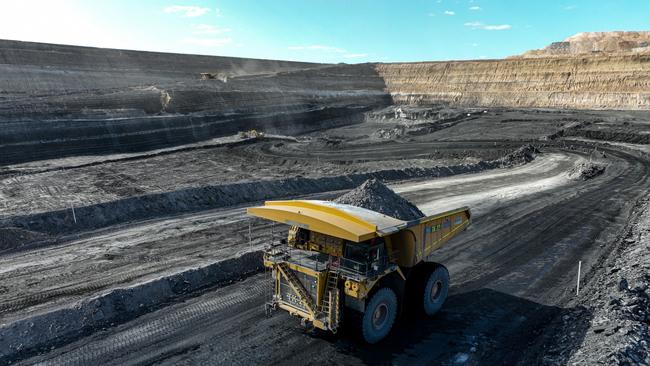Anthony Albanese warned over ‘economy-wrecking’ Greens fuel tax credits deal
Australia’s biggest industries and companies have warned Labor that a deal with the Greens to dismantle fuel tax credits would wreak havoc on the economy and drive-up grocery prices.

You can now listen to The Australian's articles. Give us your feedback.
A powerful alliance of Australia’s biggest industries has warned Anthony Albanese that a pre-election deal with the Greens to dismantle fuel tax credits would inflict severe damage on the economy, drive up grocery prices and cost jobs in key election states.
Miners, fishers, farmers, builders, gas producers, tourist operators and winemakers – who employ millions of Australians – have launched a pre-emptive strike to stave off any deal that unravelled longstanding fuel tax credits.
Amid concerns the government is considering striking a pact with the Greens to pass its controversial Nature Positive legislation, industry leaders are warning of skyrocketing prices and job losses if Labor removes fuel tax credits.
The Fuel Tax Credit Alliance, established by 15 major industry groups, on Friday will release a report by leading economist Chris Richardson warning that changes to fuel tax credits would undermine the tax system, duplicate existing climate policies and increase consumer costs.
Business chiefs say a Greens-inspired crackdown on diesel vehicles and machinery would wreak havoc in regional areas and the battleground election states of Queensland and Western Australia.
Fuel tax credits, available in various forms since 1957, ensure agriculture, minerals, construction, tourism, fisheries and manufacturing businesses are not disadvantaged in the global market by paying road taxes for diesel and other fuels used for machinery and vehicles that don’t use public roads.
Ahead of the May budget, government ministers promised industry leaders they would not touch fuel tax credits, despite pressure from the Greens and left-wing think tanks to abolish support for fossil fuel companies. Labor, which increased heavy vehicle road user charges in the 2023-24 budget to save $1.1bn in fuel tax credit expenditure over four years, has separately imposed tough emissions reduction rules on large emitters under safeguard mechanism changes and other measures.
In his report, Mr Richardson said “it is dumb to let taxes cascade on top of each other … doing so is an own goal that unnecessarily reduces living standards”.
“Avoiding doing exactly that is, for example, the very same principle that underpins the GST system (whereby tax is not applied on business-to-business transactions through use of GST input tax credits),” the Rich Insight founder said.
“And avoiding doing that is also why fuel taxes are levied on consumers rather than on businesses – ensuring that when the chain of sales finally does reach consumers, those families only end up paying one round of fuel taxes, rather than many such rounds.”
Mr Richardson warned against unnecessarily complicating the tax system and causing economic harm by altering fuel tax credits in the name of emissions reduction.
“It would be a backward step to mess up Australia’s treatment of fuel tax credits. The conclusion is simple: if the intent is to do the right thing on the tax front and the right thing in helping to fight global warming, then the key is to have two good policies rather than one flawed one,” he said.
“With respect to fuel tax credits, the current arrangements are already good policy.
“With respect to global warming policies, the government has embarked on major changes to the safeguard mechanism, and industry is now adapting to those changes.”
The Fuel Tax Credit Alliance includes the National Farmers Federation, Master Builders Australia, Minerals Council of Australia, Australian Energy Producers, Australian Grape and Wine, Seafood Industry Australia, Tourism Tropical North Queensland, Canegrowers, National Irrigators’ Council, Victoria Tourism Industry Council and Maritime Industry Australia.
“The publication of the report comes at a critical juncture, with the federal government reportedly reconsidering its clear promise to Australian industry that it would make no changes to the fuel tax credit system,” the alliance said.
“The government must immediately rule out using fuel tax credits as bait in any negotiations with the Greens to secure the minor party’s vote on legislation. To do so would have broad ramifications for the Australian economy.”
Governments have for generations backed a “user pays” model, drawing from fuel excise and vehicle registration revenue to fund public roads.
The alliance, whose motto is “Road Taxes are for Road Users”, said the system was “fair … and well understood and appreciated in regional Australia, where diesel fuel is the backbone of its industries, powering the machinery that harvests crops, extracts minerals, and underpins fishing and tourism operations”.




To join the conversation, please log in. Don't have an account? Register
Join the conversation, you are commenting as Logout